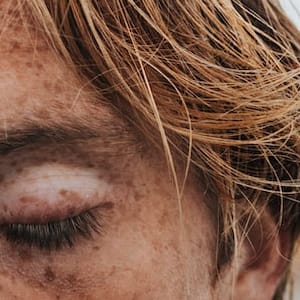bone-idle: Idiom Meaning and Origin
What does ‘bone-idle’ mean?
The idiom bone-idle means extremely lazy or idle. It is a metaphorical expression that compares someone's laziness to the state of a bone, which is idle and does not have any purpose or function.

Idiom Explorer
The idiom "skin and bones" refers to someone who is extremely thin or emaciated, with very little body fat or muscle. It is often used to describe a person who looks unhealthy, gaunt, or undernourished.
The idiom "kick one's heels" means to wait idly or impatiently for something or someone without any purpose or result.
The idiom "jump someone's bones" means to have sexual intercourse with someone.
The idiom "go to sleep" means to fall asleep or to begin the process of sleeping. It is often used to encourage someone to relax and rest, or to indicate that someone is not paying attention or is disinterested in a particular topic or situation.
The idiom "good-for-nothing" is used to describe someone or something that is completely useless, lazy, or of no value or benefit. It implies a strong negative judgment about the person or thing being referred to.
The idiom "good for nothing" is used to describe someone or something that is completely useless or lacking in any value or purpose.
The idiom "go nowhere" means to make no progress or to have no effect. It can be used to describe a situation, a plan, or a person's actions that are unproductive or leading to no meaningful outcome.
The idiom "fall asleep" is used to describe the act of entering into a state of sleep or becoming unconscious due to fatigue or tiredness.
Decoding Laziness and Inaction
The idiom "bone-idle" refers to someone who is extremely lazy or idle. The term "bone" emphasizes the deep-rooted and inherent nature of the laziness being described. While the origin of this idiom is unclear, it is believed to have originated in the late 19th century and is primarily used in British English.
One possible theory suggests that the idiom "bone-idle" may have derived from the phrase "lazy as a bone," which was commonly used in the 18th and 19th centuries. Another theory suggests that "bone-idle" may have come from the word "bonyard," which referred to a graveyard or burial ground. This connection may stem from the idea of being completely motionless and inactive, akin to a skeleton resting in a cemetery.
The use of the word "bone" in the idiom may also be related to the concept of having no muscles or flesh to do any work, reinforcing the idea of extreme idleness. The term "idle" itself implies a lack of activity, productivity, or effort, further emphasizing the laziness being described.
As with many idioms, the exact origin and evolution of the phrase "bone-idle" remain uncertain. However, its meaning is widely understood and has become a well-established expression within the English language.
The idiom "bone-idle" serves as a colorful and evocative way to describe individuals who display a remarkable lack of motivation or industry. It conveys a sense of deep-rooted laziness and inertia, suggesting that the person referred to by this idiom possesses a level of indolence that is ingrained in their very bones.
When used in a sentence, the phrase "bone-idle" makes a vivid impact, due to the visual imagery it evokes. It conjures up an image of a person who is not just casually lazy, but rather someone who is profoundly and inherently idle, as if it is a part of their very being.
Furthermore, the idiom "bone-idle" suggests that the person described by this expression is not simply exhibiting a temporary laziness or a lack of motivation in a particular situation, but rather a chronic and pervasive state of idleness. It implies that being idle is not just an occasional characteristic of the person, but a defining trait.
Another related idiom is "bone-dry" which is used to describe something that is completely devoid of moisture or liquid. This expression carries a similar connotation of emptiness and lack, much like the idiom "bone-idle". Just as a bone implies no muscles or flesh to do any work, being bone-dry signifies a complete absence of moisture, leaving something barren and dry.
The idiom "bone dry" is a variation of "bone-dry" and has the same meaning. It emphasizes the complete lack of moisture or liquid in an even stronger manner. This idiom further reinforces the imagery and sensory perception of something being utterly devoid of any liquid content.
Another idiomatic expression related to "bone-idle" is "skin and bones". This phrase refers to a person or animal who is extremely thin or emaciated, to the point where their bones are visible or protruding. It highlights the extreme physical state of thinness and lack of flesh on the person or animal's body, portraying an image of frailty and weakness. "Skin and bones" shares a similar theme of emptiness and depletion with the idiom "bone-idle", although it pertains more to physical appearance rather than laziness.
Despite its relatively straightforward and widely understood meaning, the idiom "bone-idle" leaves room for some interpretation. For instance, it raises questions about the nature of laziness and idleness as inherent or learned behaviors, and whether they can be permanently ingrained in a person's character.
The idiom "bone-idle" is used to describe individuals who are extremely lazy or idle. While its origin remains uncertain, it has become a well-established expression within the English language. The idiom's use of the word "bone" emphasizes the inherent and deep-rooted nature of the laziness being described. Its inclusion of the term "idle" further highlights the lack of activity or effort exhibited by the person in question. The idiom's vivid and evocative language allows it to make a memorable impact, presenting laziness as a chronic and defining trait. However, it also raises questions about the nature of idleness and its permanence within an individual's character. Another related idiom is "bone-dry" which describes something completely devoid of moisture or liquid. Similarly, the idiom "bone dry" emphasizes this complete absence of moisture even more strongly. Additionally, the idiom "skin and bones" portrays extreme thinness or emaciation, highlighting the frailty and weakness of a person or animal. Overall, the idiom "bone-idle" captures the essence of extreme laziness with a touch of imagery and nuance.
Example usage
Examples of how the idiom "bone-idle" can be used in a sentence:
- He never lifts a finger to help around the house, he's bone-idle.
- Despite having plenty of time to study, she is bone-idle and never puts in any effort.
- The lazy employee is bone-idle, always finding excuses to avoid work.
More "Laziness" idioms



